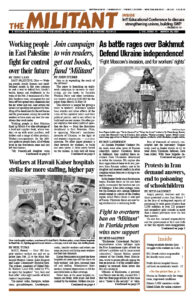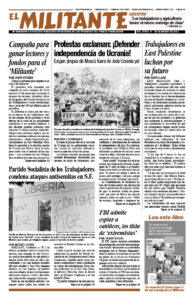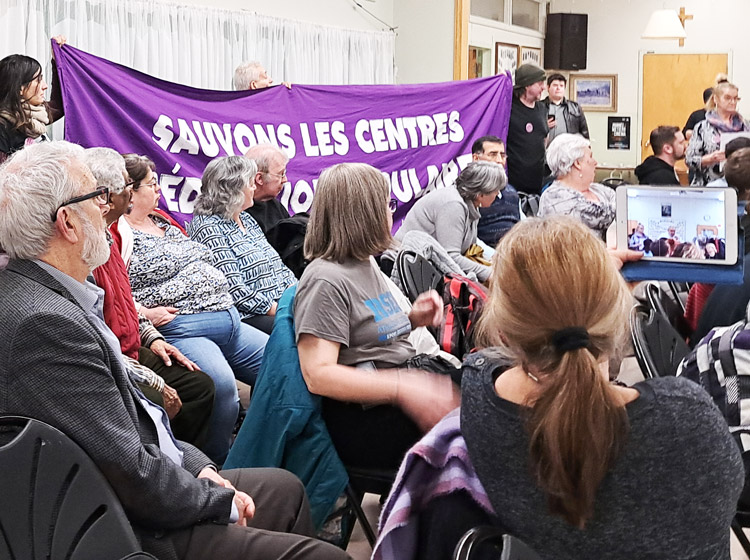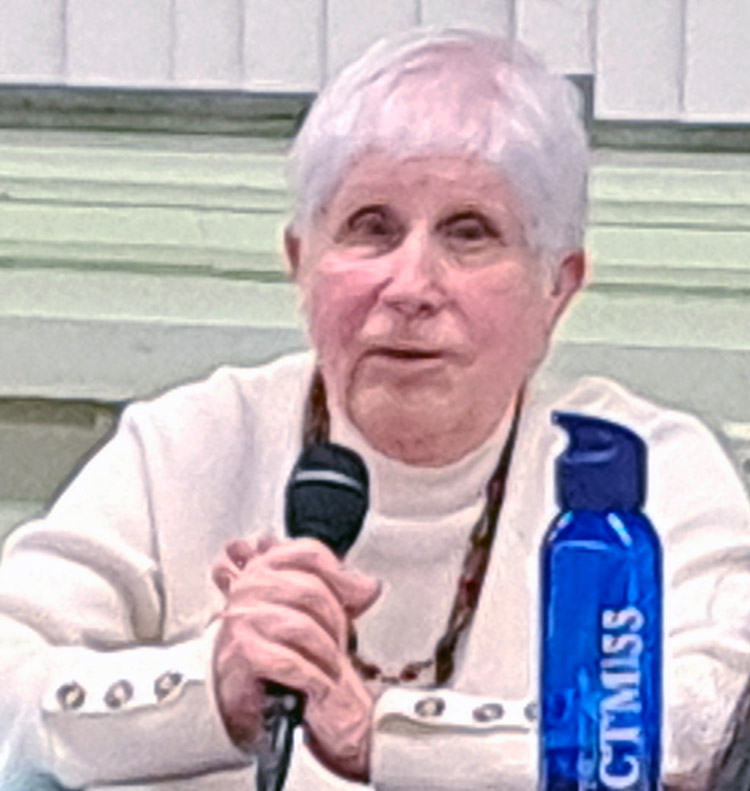MONTREAL — Beverly Bernardo, Communist League candidate in the March 13 provincial by-election in the Montreal electoral constituency of Saint-Henri-Sainte-Anne, brought her fighting working-class program to some 65 people at a candidates’ debate Feb. 28, sponsored by the Solidarity Saint-Henri community organization.
“Many of the questions we have been asked here are about what candidates are promising to do for us if they are elected,” Bernardo told the meeting. In contrast to the capitalist parties, “the Communist League’s starting point is the need for working people to rely on ourselves to fight for what we need.” She pointed to the openings to build solidarity with union struggles as more working people resist the impact of the deepening capitalist crisis.
“We can’t rely on parties that defend the interests of the bosses,” she said. “Through our struggles our unions need to build a labor party.” Along that road, we can “organize and mobilize working people to replace Canada’s government of the ruling rich with a workers and farmers government.”
Bernardo is a factory worker and member of the Bakery, Confectionery, Tobacco Workers and Grain Millers union.
Seven of the 11 candidates participated in the debate, but not the one from the governing Coalition for the Future of Quebec (CAQ).
Sharply different class perspectives were expressed about CAQ’s Law 21 and Law 96. Law 21, which is in effect, bans teachers and some other public-sector workers from wearing religious symbols on the job. Law 96, adopted last May, which is being debated, targets English speakers, declaring French the official language and according language rights only to English-speakers born here. After six months living in Quebec, immigrants will not be able to access social services in English. Quebec Premier Francois Legault claims this is needed to protect the French language and culture, which he alleges are under threat from working people who speak English.
“The goal of these laws is to weaken the ability of working people to defend our common class interests by dividing us along religious and language lines,” Bernardo said. “They should be opposed by workers and our unions.”
“I support Law 96,” Andreanne Fiola, the Parti Quebecois candidate, told the meeting. “You can see the problem here in Saint-Henri-Sainte-Anne where a third of the population speaks English.”
“The threat to the French language from immigrants simply does not exist,” Bernardo said. “In the factory where I work, the language of work is French. But co-workers also speak Spanish, Swahili, English and many other languages. That is not a problem. To the contrary, it enriches us.”
Speaking from the audience, a doctor from Madagascar said, “Under Law 96 immigrant patients are forced to try to communicate with medical personnel in French, a language they do not necessarily understand or speak. This is wrong and medically dangerous. Adequate health care is a basic right.”
The meeting also debated the crisis in housing, rising hunger, care of the elderly and education. Several participants unfurled a large banner calling on the Quebec minister of education to allocate sufficient funds to Quebec’s Centers of Popular Education. Without funding the Saint-Henri center’s existence will be threatened.



